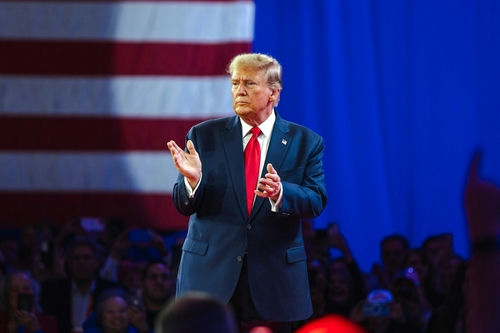The Trump administration’s decision to deploy military attorneys to prosecute civilian crimes in Washington, D.C. signals a historic shift in federal power, igniting fierce debate over constitutional rights and the future of local autonomy.
Trump Administration Asserts Federal Control in D.C. Crime Crackdown
President Trump’s August 2025 announcement federalizing Washington, D.C.’s police and deploying 800 National Guard troops marked a dramatic escalation in the fight against urban crime. The administration responded to concerns about public safety and lawlessness by placing the nation’s capital under direct federal oversight. This move included assigning 20 Judge Advocate General (JAG) Corps attorneys—military lawyers—to prosecute civilian misdemeanor cases, a step never before seen at this scale in American history. Supporters view the intervention as a decisive stand to restore order and uphold the rule of law in a city long beset by rising crime and perceived political dysfunction.
Within days of the federalization, the Metropolitan Police Department reported a halt in homicides, and by August 21, 2025, federal and military-backed law enforcement had carried out 630 arrests, including a significant number involving illegal immigrants. U.S. Attorney Jeanine Pirro, supported by Attorney General Pam Bondi and FBI Director Kash Patel, emphasized the administration’s commitment to rapid results, highlighting the crackdown as a model for other cities. The Trump administration cited previous failures in local governance and a need to address chronic staffing shortages in the U.S. Attorney’s Office—exacerbated by the firing of prosecutors from politically charged cases—as rationale for the unprecedented measures. The initiative’s swift impact on crime statistics has been cited by conservative leaders as proof of its effectiveness and necessity.
Military Attorneys Enter Civilian Courts: Uncharted Legal Territory
The assignment of JAG attorneys to civilian courts—historically reserved for military justice—has sparked intense legal and constitutional debate. Critics, including civil liberties organizations and legal scholars, warn that using military personnel in civilian prosecutions may violate the Posse Comitatus Act and undermine the foundational principle of civilian control over law enforcement. The use of military lawyers to prosecute local crimes raises profound questions about the limits of executive power and the potential erosion of democratic accountability. A district judge has already rejected aspects of the federalization plan, and ongoing legal challenges could shape the scope and duration of the intervention. Despite these concerns, administration officials insist the move is both temporary and necessary, given the scale of the crime crisis and local capacity issues.
Washington, D.C.’s unique status—lacking statehood and operating under federal prosecutorial authority—has made it a testing ground for new approaches to crime control. While past federal deployments in D.C. were typically short-term responses to civil unrest, the current initiative represents a fundamental shift: the federal government has not only taken operational control, but has also embedded military legal personnel deep within the civilian justice system. Proponents argue that this approach is justified by the urgency of restoring public safety and protecting law-abiding citizens. Detractors, meanwhile, caution that such measures, if normalized, could erode constitutional safeguards and set a dangerous precedent for federal intervention in local affairs across the nation.
Federalization and Its Ripple Effects: Public Safety, Liberty, and Precedent
The immediate impact of the crackdown is visible in the numbers—hundreds of arrests, a reported reduction in violent crime, and a show of federal resolve. Yet, the longer-term consequences are far less certain. Civil liberties advocates warn of potential abuses: the rapid expansion of federal authority, the militarization of domestic policing, and risks to due process and community trust. Local leaders and residents express concern that the intervention undermines home rule and could stoke lasting tensions between the public and law enforcement. At the same time, the Trump administration frames this as a test case, with President Trump himself suggesting that similar federalization could be deployed in other cities facing crime waves. The intervention’s success or failure in D.C. may well determine the shape of future federal responses to urban crime—and the balance between national security and individual freedom.
Trump administration assigns military attorneys to prosecute DC crimes amid federal crackdown https://t.co/Qq0zjk9IDk
— Fox News (@FoxNews) August 21, 2025
As the operation continues, political polarization grows sharper. Supporters see it as a long-overdue correction to years of failed, “woke” policies and bureaucratic inaction, while critics view it as a dangerous expansion of executive power. The debate touches core conservative concerns: the preservation of law and order, the defense of constitutional rights, and the role of government in safeguarding—or threatening—individual liberty. With the 2026 midterm elections looming, the nation’s eyes remain fixed on Washington, D.C., where the Trump administration’s bold experiment in crime-fighting may soon become a template—or a cautionary tale—for cities nationwide.
Sources:
Trump admin assigns military attorneys to prosecute DC crimes amid federal crackdown
JAG officers prosecute local DC cases amid Trump takeover
Click this link for the original source of this article.
Author: Editorial Team
This content is courtesy of, and owned and copyrighted by, https://www.rightwinginsider.com and its author. This content is made available by use of the public RSS feed offered by the host site and is used for educational purposes only. If you are the author or represent the host site and would like this content removed now and in the future, please contact USSANews.com using the email address in the Contact page found in the website menu.





